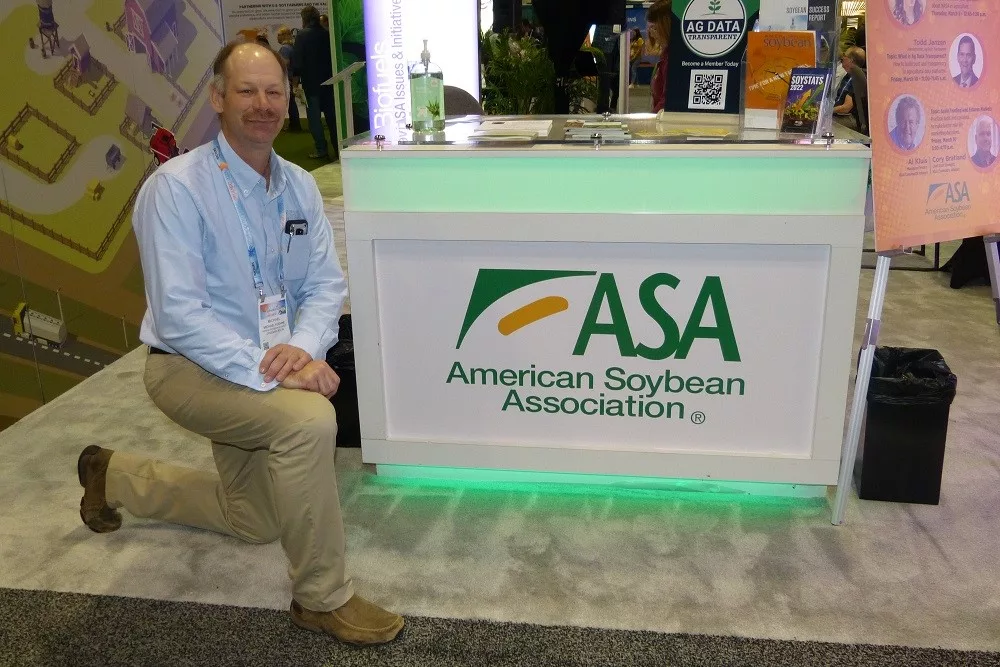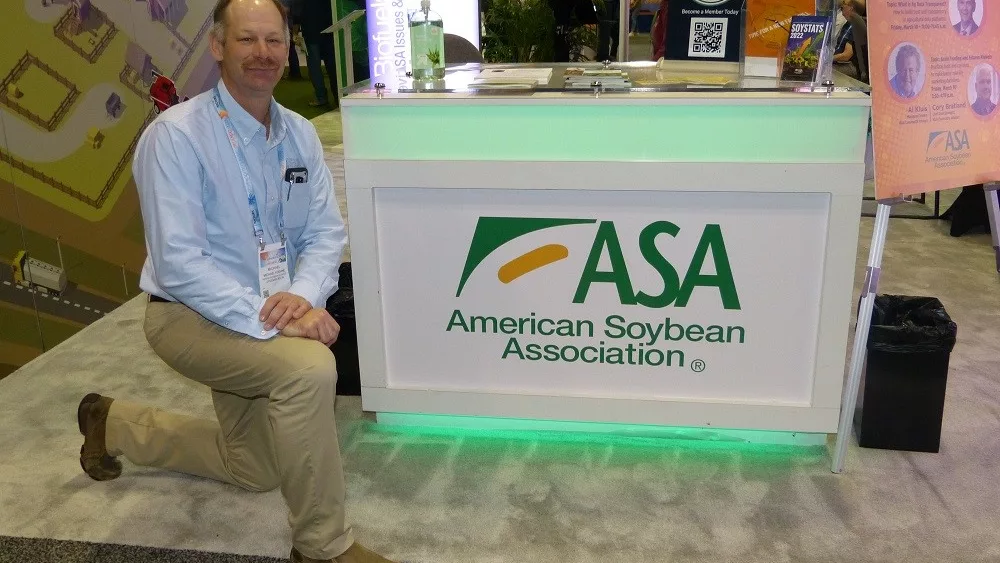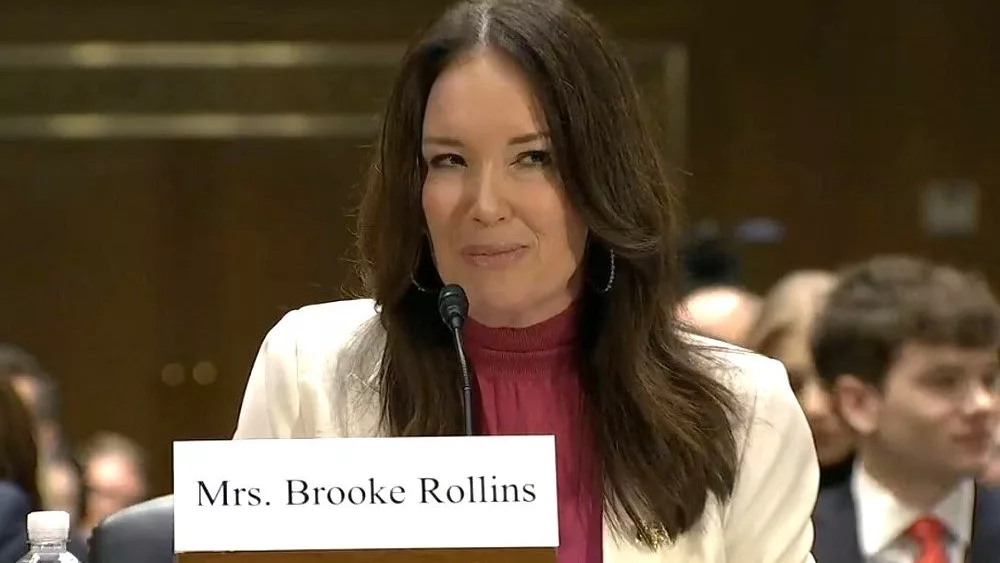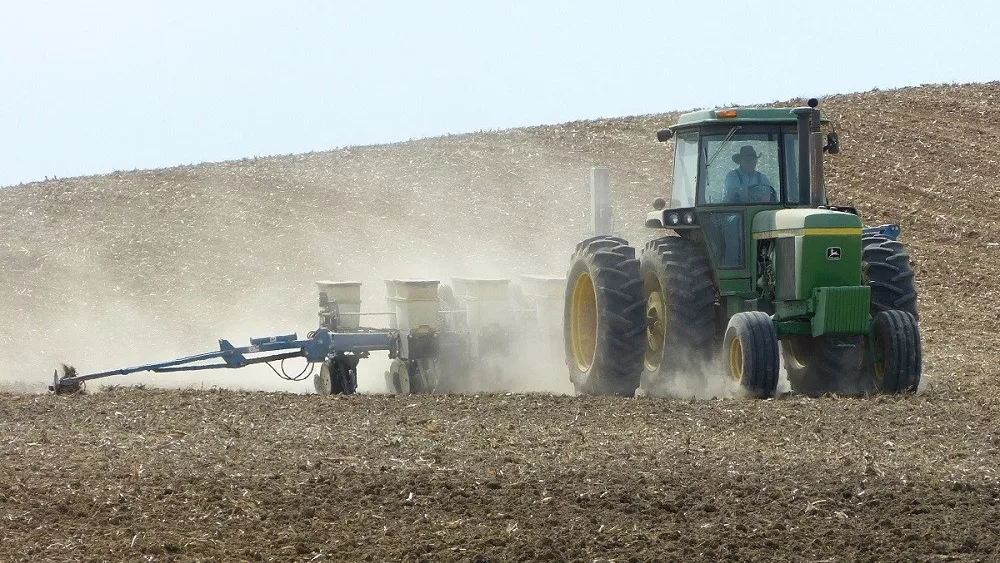
INDIANAPOLIS, Ind. — Indiana Soybean Alliance (ISA) Chair Mike Koehne, a Greensburg farmer, recently promoted the benefits of U.S. soybeans to buyers in Japan and Korea. The U.S. Soybean Export Council (USSEC) hosted the 2023 U.S. Soy Buyers Outlook Conference Nov. 14-15 in Tokyo, Japan and Nov. 16-17 in Seoul, Korea. Hundreds of crushers, feed millers, soy food processors, and soybean buyers participated in the conferences.
Koehne raises high oleic and food-grade soybeans, some of which are shipped to Japan. He was one of three U.S. farmers who attended the conference and spoke on a panel about harvest expectations, the quality of U.S. soybeans, sustainability and conservation practices used on the farm, and the benefits of soy protein. American Soybean Association President Daryl Cates, a farmer from Illinois, and Ohio Soybean Council Chairman Jeff Magyar also participated.
Koehne said there was strong interest in food-grade soybeans.
“Buyers wanted to know what we do on our farm to ensure there is a quality crop, and there were also some questions about premiums. I told them that food safety starts on our farms, and we go above and beyond to ensure that we deliver a safe and quality product,” he said. “IOM Grain ships some of my soybeans to Japan, and I was able to talk to someone who buys food-grade soybeans from IOM Grain in Japan. That buyer may have purchased some of my soybeans, and the conference gave us an opportunity to make an important connection.”
USSEC said soy is an integral part of Asian cultural and culinary heritage, and the U.S. Soy industry is working to deliver high-quality, sustainable, affordable soybeans to meet current and growing future demand in those markets.
Koehne said it’s critical to maintain these markets and relationships as Japan and Korea are some of the top importers of U.S. non-GMO food grade soybeans. A first-generation farmer, Koehne said checkoff investments help make it possible.
“We’ve been doing business with these countries for a long time and taking time to travel to these locations shows that we want to continue to do business with them,” he said. “The Indiana Soybean Alliance goes on trips like this to make connections, maintain relationships and ensure that we’re keeping up with their needs of delivering a safe and quality product. ISA invests checkoff dollars on trade and moving that pile, and I believe it makes a difference. We’re investing back into ourselves on these trips and, in my opinion, it’s money well spent.”
This is the first time that ISA has participated in the U.S. Soy Buyers Outlook Conference. Ed Ebert, senior director of market development, explained it was valuable experience with good communication between USSEC staff, U.S. farmers, and Japanese and Korean customers.
“Buyers in those countries were reassured that the U.S. soybean supply is adequate with good performance and yields despite some weather challenges. It also gives them confidence to be able to talk with the farmers involved in the production of the food they’re shipped. It helps develop and maintain trust among the buyers of U.S. soybeans,” Ebert said. “It’s important to maintain access to these markets and build trust because we have strong competitors from South America that are also trying to get their business. Taking the time to share our story and the important work of soybean growers is an important part of differentiating our products.”
Pence Group, a Lafayette, Ind.-based agriculture company, was at the conference in Japan to help develop global opportunities for non-GMO soybeans. The company serves producers and agribusinesses with seed, seed processing, farm drainage, and custom hauling solutions. Pence Group provides customers with corn, soybean, and cover-crop seed from several leading brands. The Redwood Group, which has ties to southern Indiana, participated in both the Japan and Korea conferences. The Redwood Group is a diversified commodities company that specializes in customized supply chain solutions, food and feed ingredient supply, energy and energy input supply, and grain merchandising.
Participants also heard from Will McNair, USSEC director of human protein and oil, and Seth Neave, a soybean agronomist with the University of Minnesota and an associate professor in Agronomy and Plant Genetics. McNair provided a non-GMO crop update and Neave discussed the quality of the U.S. soybean crop.
Ebert added there was widespread interest in high oleic soybeans. “The meeting and ISA partnerships helped garner interest from Korean buyers in importing U.S. high oleic soybean oil,” he said.
Indiana is leading in high oleic soybean acres. According to the United Soybean Board, high oleic soybeans are currently grown in 13 states throughout the U.S. soybean belt with the highest concentration of acres in Indiana and Ohio. Indiana farmers grew high oleic soybeans on approximately 850,000 acres in 2023. For more information, visit incornandsoy.org.





